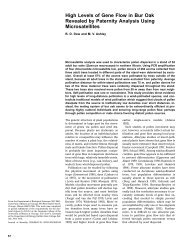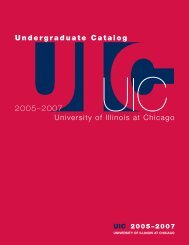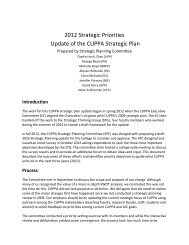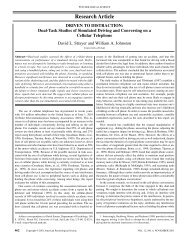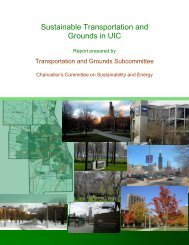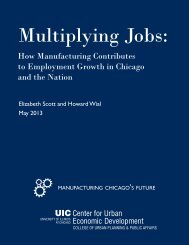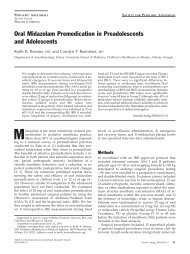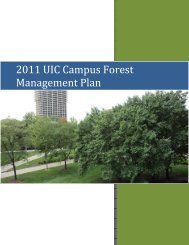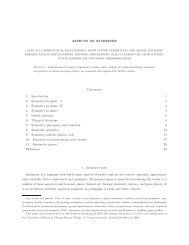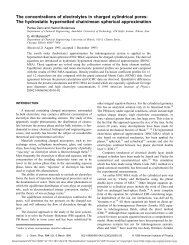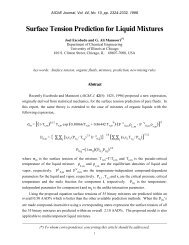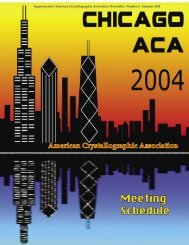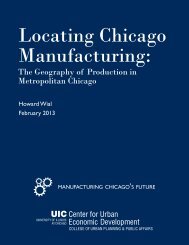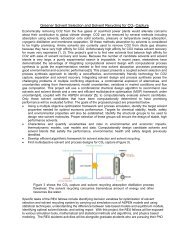Repeating Lenin by Slavoj Zizek
Repeating Lenin by Slavoj Zizek
Repeating Lenin by Slavoj Zizek
You also want an ePaper? Increase the reach of your titles
YUMPU automatically turns print PDFs into web optimized ePapers that Google loves.
<strong>Repeating</strong> <strong>Lenin</strong> <strong>by</strong> <strong>Slavoj</strong> <strong>Zizek</strong><br />
9/20/11 2:53 PM<br />
obstacle which prevents thought from attaining full identity with itself. The moment we concede<br />
on this point and externalize the obstacle, we regress to the pseudo-problematic of the thought<br />
asymptotically approaching the ever-elusive “objective reality,” never being able to grasp it in it<br />
infinite complexity.8 The problem with <strong>Lenin</strong>’s “theory of reflection” resides in its implicit<br />
idealism: its very compulsive insistence on the independent existence of the material reality<br />
outside consciousness is to be read as a symptomatic displacement, destined to conceal the key<br />
fact that the consciousness itself is implicitly posited as EXTERNAL to the reality it “reflects.”<br />
The very metaphor of the infinite approaching to the way things really are, to the objective truth,<br />
betrays this idealism: what this metaphor leaves out of consideration is the fact that the partiality<br />
(distortion) of the “subjective reflection” occurs precisely because the subject is INCLUDED in<br />
the process it reflects — only a consciousness observing the universe from without would see<br />
the whole of reality “the way it really is.”9<br />
This, of course, in no way entails that the tracing of the difference between idealism and<br />
materialism is today not more crucial than ever: one should only proceed in a truly <strong>Lenin</strong>ist way,<br />
discerning — through the “concrete analysis of concrete circumstances” — WHERE this line of<br />
separation runs. One is thus tempted to claim that, even WITHIN the field of religion, the<br />
singular point of the emergence of materialism is signalled <strong>by</strong> Christ’s words on the cross<br />
“Father, why have you forsaken me?” — in this moment of total abandonment, the subject<br />
experiences and fully assumes the inexistence of the big Other. More generally, the line of<br />
division is that between the “idealist” Socratic-Gnostic tradition claiming that the truth is within<br />
us, just to be (re)discovered through an inner journey, and the Judeo-Christian “materialist”<br />
notion that truth can only emerge from an EXTERNAL traumatic encounter which shatters the<br />
subject’s balance. “Truth” requires an effort in which we have to fight our “spontaneous”<br />
tendency.<br />
And what if we were to connect this notion of the truth emerging from an external encounter<br />
with the (in)famous <strong>Lenin</strong>’s notion, from What Is to Be Done?, of how the working class<br />
cannot achieve its adequate class consciousness “spontaneously,” through its own “organic”<br />
development, i.e. of how this truth has to be introduced into it from outside (<strong>by</strong> the Party<br />
intellectuals)? In quoting Kautsky at this place, <strong>Lenin</strong> makes a significant change in his<br />
paraphrase: while Kautsky speaks of how the non-working-class intellectuals, who are<br />
OUTSIDE THE CLASS STRUGGLE, should introduce SCIENCE (providing objective<br />
knowledge of history) to the working class, <strong>Lenin</strong> speaks of CONSCIOUSNESS which should<br />
be introduced from outside <strong>by</strong> intellectuals who are outside the ECONOMIC struggle, NOT<br />
outside the class struggle! Here is the passage from Kautsky which <strong>Lenin</strong> quotes approvingly —<br />
http://www.marxists.org/reference/subject/philosophy/works/ot/zizek1.htm<br />
Page 6 of 57



